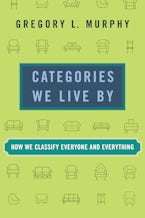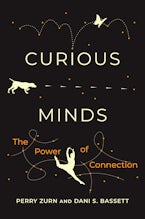“This is the book for our era: a brilliant and balanced explanation of the phenomenon of partisanship, how it is rooted in human cognition and human nature, how it distorts our collective rationality, and how we might deal with it. It is fascinating, timely, and profound.”
Steven Pinker, Johnstone Professor of Psychology, Harvard University, and the author of How the Mind Works and Rationality
“With unrivaled scholarship, Professor Stanovich draws together a wide range of diverse psychological literatures that point to the same conclusion: However smart and well educated they may be, people favor and advance only the arguments that accord with their worldview. In an era of bitterly partisan politics and heavily polarized opinions on the major issues facing the world, the author's insights into this hugely important phenomenon could hardly be more timely or relevant.”
Jonathan St. B. T. Evans, University of Plymouth
“The Bias That Divides Us should be read by producers and consumers of research, including students, faculty, parents, administrators, and policy makers. We have gotten to the dysfunctional stage at which research outcomes related to race and gender must be preapproved; they must accord with dominant ideology. Members of the public have become aware of this and no longer believe the research findings that come out of universities. Stanovich convincingly argues that shutting down undesired research results in public skepticism not only about the disdained findings but also about findings that are congenial with dominant sociopolitical values. It is one of the most important books I have read in ages, joining the ranks of those written by Pinker, Lukianoff and Haidt, and others.”
Stephen J. Ceci, The H. L. Carr Chaired Professor of Developmental Psychology, Cornell University
“This incisive book should be required reading of all undergraduates on the planet. Reading it, though, won't be enough. It's too easy to agree, in a gesture of empty open-mindedness, that we're all guilty of myside bias. The hard part is thinking more deeply about how we think. And there is no substitute for repeatedly discovering how closed-minded you are when you submit to tests of myside bias.”
Philip E. Tetlock, Annenberg University Professor, University of Pennsylvania












